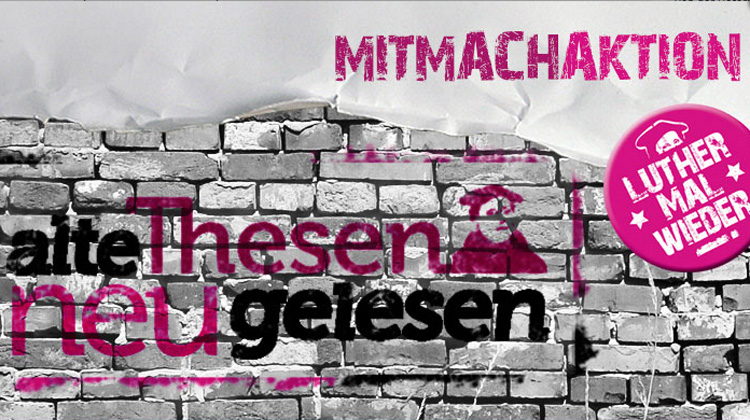
POLYAS supports join-in activity for the anniversary of the Reformation
Luther’s posting of his theses is celebrating its 500th anniversary in two years. In honour of this the Evangelical Church of Kurhessen-Waldeck (EKKW) has organised a join-in fundraiser for church communities under the motto “Alte Thesen neu gelesen” (“Old theses read anew”). POLYAS is happy to support this competition with prize money.
With this competition set up by the Evangelische Landeskirche in Kassel, around 800 parishes are prompted to discuss the question of what it means to “be evangelical”. This is primarily intended to form a mental bridge between the Luther’s historic theses and the present and future.
Revolutionary times – then and now
Luther’s theses, but especially his translation of the Bible into German, famously had far-reaching consequences: Firstly, thanks to his translation, the contents of the Bible were now accessible to the lower classes. Nowadays this process would be considered a form of transparency. Even today we once again live in similarly revolutionary times. Like Luther before, today’s digitalisation of society is resulting in transparency and opportunities to participate that have never been seen before. They are among the chief drivers behind this advancing digitalisation of society, and thus the digitalisation of democracy.
Searching for sustainable ideas
During the “Old theses read anew” promotion, the approximately 800 parishes of the EKKW may submit their project ideas to the Landeskirche in Kassel from 31 March to 30 June 2015. These are then to be implemented between 1 September 2015 and 31 October 2016.
A jury will then evaluate the submitted projects. The three best, most sustainable projects will be signed off at a gala by Bishop Dr. Martin Hein on 6 May 2017. POLYAS looks forward to providing the main prize amounting to 5,000.00 EUR.
The EKKW is the largest evangelical congregation in Germany. During the church committee election in 2013, the approximately 780,000 authorised voters had the opportunity to cast their votes online through the POLYAS voting system. This was the first ever German church committee election that was also conducted as an online vote. Over 70,000 authorised voters took this opportunity.
Picture source: EKKW